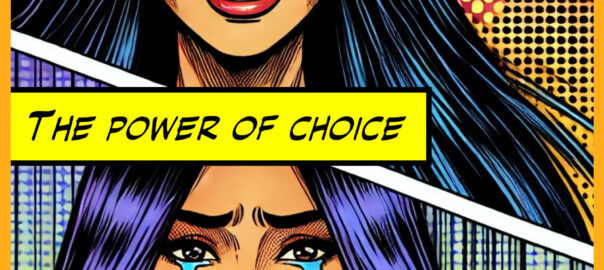In the stillness of the night, when shadows stretch long and the world is cloaked in darkness, a profound sense of existential despair can often emerge. This feeling, a haunting blend of anxiety, disillusionment, and longing for meaning, is a common yet deeply personal experience. It encapsulates the human struggle to find purpose in a seemingly indifferent universe.

The Nature of Existential Despair
Existential despair is not merely a fleeting feeling of sadness or a momentary bout of depression. It is a deep, pervasive sense of hopelessness and disconnection that arises from contemplating the nature of existence itself. This despair can make one question the purpose of life, the inevitability of suffering, and the seeming randomness of the universe. It often strikes during quiet, introspective moments, such as the stillness of night when distractions are minimal and one’s thoughts are free to wander.
Philosophical Roots
The concept of existential despair has been explored extensively by existential philosophers such as Søren Kierkegaard, Friedrich Nietzsche, Jean-Paul Sartre, and Emil Cioran. Kierkegaard, often considered the father of existentialism, described despair as the sickness unto death, a state of being that arises when one fails to align their finite existence with their infinite spirit. Nietzsche, with his proclamation of the “death of God,” highlighted the void left in the absence of religious certainty and the moral frameworks that provide meaning. Sartre’s notion of radical freedom and the burden of choice in an absurd universe further deepens the understanding of existential despair. Cioran, known for his bleak outlook, often wrote about the futility of life and the inescapable nature of suffering.
The Human Condition
Existential despair is intrinsically linked to the human condition. It reflects our awareness of our mortality, our search for meaning, and our confrontation with the vast, often indifferent cosmos. This despair can lead to a profound sense of isolation, as individuals grapple with their unique experiences and perceptions. The stanza, “In the depths of night, where shadows creep, Life’s meaning fades, and silence weeps. Existence teeters on despair’s thin line, Yet in this void, we seek the divine,” poignantly captures this sentiment. It underscores the tension between the despair of existence and the hope for transcendence or understanding.
Coping with Existential Despair
Navigating existential despair requires a multifaceted approach. Here are some strategies that can help:
- Philosophical Engagement: Delving into the works of existential philosophers can provide a sense of solidarity and deeper understanding. Their explorations of despair and meaning can offer valuable insights.
- Creative Expression: Art, writing, and other forms of creative expression can serve as outlets for processing and articulating complex emotions. They allow individuals to externalize their inner turmoil and find beauty in the process.
- Connection with Others: Building meaningful relationships and finding communities of like-minded individuals can alleviate feelings of isolation. Shared experiences and mutual support can foster a sense of belonging.
- Mindfulness and Acceptance: Practices such as mindfulness and acceptance can help individuals cultivate a compassionate and present-focused approach to life. These practices encourage an awareness of the transient nature of emotions and the impermanence of all things.
- Personal Meaning: Creating one’s own meaning and purpose, whether through relationships, passions, or personal projects, can counteract the void left by existential despair. This subjective search for meaning is deeply personal and unique to each individual.
Conclusion
Existential despair, while deeply challenging, is also a testament to the profound depth of human consciousness. It reflects our innate desire to understand our place in the universe and the meaning of our existence. By exploring and confronting this despair, we can uncover deeper truths about ourselves and the world around us. In the void of existential uncertainty, the human spirit continues to seek, strive, and find meaning, illuminating the darkness with its enduring light.
- Søren Kierkegaard:
- Kierkegaard, S. (1983). Fear and Trembling / Repetition. Princeton University Press.
- Kierkegaard, S. (1989). The Sickness Unto Death: A Christian Psychological Exposition for Upbuilding and Awakening. Princeton University Press.
- Friedrich Nietzsche:
- Nietzsche, F. (1974). The Gay Science. Vintage Books.
- Nietzsche, F. (1967). The Will to Power. Vintage Books.
- Jean-Paul Sartre:
- Sartre, J. P. (2001). Being and Nothingness: An Essay on Phenomenological Ontology. Routledge.
- Sartre, J. P. (1946). Existentialism is a Humanism. Yale University Press.
- Emil Cioran:
- Cioran, E. M. (1973). The Trouble with Being Born. Arcade Publishing.
- Cioran, E. M. (1992). A Short History of Decay. Arcade Publishing.
- General Existentialism:
- Flynn, T. R. (2006). Existentialism: A Very Short Introduction. Oxford University Press.
- Solomon, R. C. (2005). Existentialism (Second Edition). Oxford University Press.
- Philosophical Engagement:
- May, R. (1983). The Discovery of Being: Writings in Existential Psychology. W.W. Norton & Company.
- Yalom, I. D. (1980). Existential Psychotherapy. Basic Books.
- Creative Expression and Connection:
- Frankl, V. E. (2006). Man’s Search for Meaning. Beacon Press.
- Camus, A. (1991). The Myth of Sisyphus and Other Essays. Vintage Books.
- Mindfulness and Acceptance:
- Kabat-Zinn, J. (1990). Full Catastrophe Living: Using the Wisdom of Your Body and Mind to Face Stress, Pain, and Illness. Dell Publishing.
- Hayes, S. C., Strosahl, K. D., & Wilson, K. G. (2011). Acceptance and Commitment Therapy: The Process and Practice of Mindful Change. The Guilford Press.


